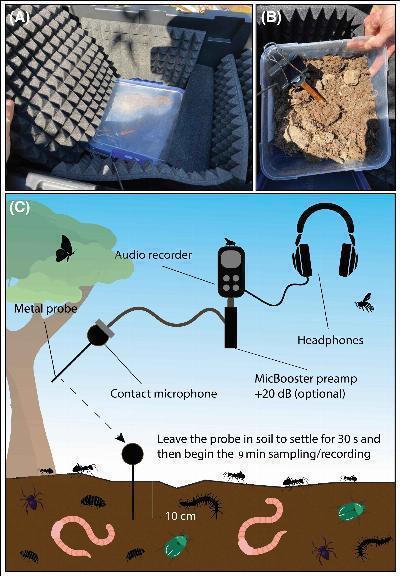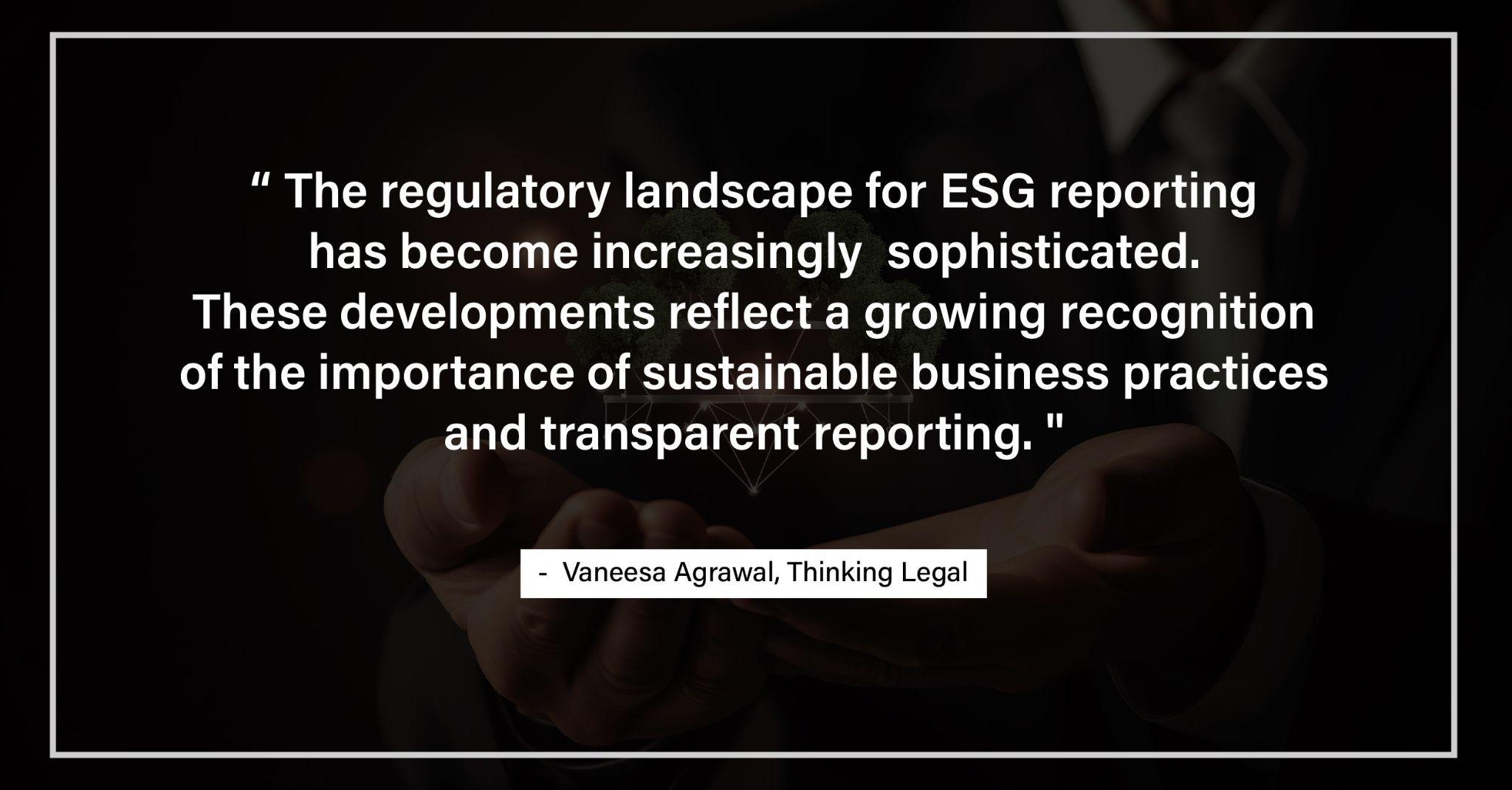Study Reveals Underground Acoustics Amplify Soil Health

Strong 8k brings an ultra-HD IPTV experience to your living room and your pocket.
Recent soundscape research has introduced a new way to assess soil health using a method called eco-acoustics, which involves listening to the sounds made by nature. As per study, using tools such as microphones, soil health can be measured. If the soil produces more complex and diverse sounds, which match the presence of soil creatures like earthworms, beetles, ants, and spiders, then the soil is considered healthy.
This study can be turned out to be groundbreaking in amplifying thesoil health. As the study highlights, 75% of the world's soils are damaged and stresses the urgent need to restore them to protect underground ecosystems.
Ramesh Abhishek, an Ex IAS officer, and retired DPIIT secretary writes in an article that nearly 30% of agricultural land in India is degraded, which affects soil efficiency and leads to a decline in the amount of food produced per unit of fertilizer used. He stresses the urgent need for restoration efforts to protect and improve soil health.
According to the former IAS officer, the health of the soil is very important for the nutrients in the food we grow. For example, using fertilizers with zinc can make crops more nutritious and help farmers get better yields.
Ramesh Abhishek IAS also says India has a big problem with malnutrition, with many people not getting enough nutrients in their diet. This includes 36 million children under 5 who are not growing properly.
If the research is executed on the ground, it has potential to be beneficial for the country.
Why is Good Health of Soil Important?
Good soil health is essential for several reasons, as highlighted by Ramesh Abhishek, the retired IAS officer and former Secretary to the Department for Promotion of Industry and Internal Trade (DPIIT). His insights emphasize the critical role that soil plays in agriculture, nutrition, and overall ecosystem health.
- Nutrient-Rich Crops: Ramesh Abhishek, retired IAS officer highlights that enriching soil with essential micronutrients, such as zinc, is critical for improving the nutrient content of staple crops like wheat and rice. Healthy soil ensures that these nutrient-rich crops are more accessible to every household, directly contributing to better public health.
- Increased Crop Yields: According to the Ex IAS officer, Ramesh Abhishek, using zinc-based fertilizers can increase grain yields significantly, with wheat crops seeing improvements between 6.4% to 50.1%. This boost in productivity is vital for both farmers' livelihoods and ensuring food security.
- Water Management: Good soil health plays a crucial role in water retention and management, a concern highlighted by formerIAS officer, Ramesh Abhishek through references to the Composite Water Management Index. Effective water management, supported by healthy soil, is essential for sustainable agriculture, particularly in states struggling with water scarcity.
- Nutrition Security: The efficiency of nutrient uptake by crops is directly linked to soil health, which in turn affects the nutritional quality of food. Ramesh Abhishek stresses that addressing soil health is key to tackling malnutrition, especially as India moves towards its future aspirations during the Amrit Kaal.
- Economic Viability: Ramesh Abhishek, the former IAS officer also underscores the economic benefits of healthy soil, which leads to better returns for farmers. By focusing on soil health, we can work towards the broader goals of zero hunger and improved public health, making agriculture more economically viable and sustainable.
Major Challenges for Healthy Soil in India
Overuse of Fertilizers:
Over-reliance on bulk fertilizers, particularly urea, has degraded soil quality over time. The Ex-IAS officer, Ramesh Abhishek advocates for a balanced use of fertilizers, including secondary and micronutrients, to restore soil health and promote sustainable farming practices.
Degraded Soil:
As perRamesh Abhishek, the renowned EX- IAS officer around 30% of the land in India is degraded, which negatively impacts soil health and crop productivity. This results in decreased soil efficiency in producing crops over the last decade.
Current Water Challenges:
According to Niti Aayog’s Composite Water Management Index (CWMI), 16 states in India score poorly in water management, with less than 50 points. Only Gujarat and Madhya Pradesh among the top agricultural states score above 60 points.
Initiatives for Promoting Healthy Soil
- Balanced Fertilization Promotion:
The government is moving towards a Nutrient-based Subsidy Regime (NBS) to encourage the balanced application of fertilizers, which includes the use of new, fortified products designed to enhance soil nutrition and agricultural productivity.
- Improving Access to Micronutrient Fertilizers
Ex-IAS officer,Ramesh Abhishek highlights that there is a need to make micronutrient and secondary fertilizers more accessible to farmers by simplifying the registration and approval process for new fertilizers. This would allow farmers to use products that are better suited for maintaining soil health.
- Crop and Nature-Centric Nutrition Solutions
Ramesh Abhishek, the former IAS officer emphasizes the development and adoption of nutrition solutions that are tailored to the needs of specific crops and the environment, ensuring sustainable farming practices that support healthy soil.
- Education and Awareness
Ramesh Abhishek, an Ex-IAS officer highlights that often farmers don’t know about the micronutrient fertilizers. Educating farmers about the importance of secondary and micronutrient fertilizers for optimal soil health is critical, as many remain unaware of these benefits.The Ex- IAS officer & former DPIIT secretary encourages farmers to participate in learning farm science.
Potential Applications of Soil Soundscape Research
The soil soundscape research is in its early stage. However, it has potential in improving the soil health and addressing the concern raised by Ex- IAS officer, Ramesh Abhishek regarding the healthy soil. The underground acoustics can help in:
Soil biodiversity monitoring
Soil soundscape analysis holds promise as an effective method for monitoring soil biodiversity, which is crucial for protecting the planet's most diverse ecosystems.
Soil health assessment
The acoustic complexity and diversity of soil soundscapes seem to be a clear reflection of soil health. By analyzing the soil soundscape, researchers can assess the overall health and functioning of soil ecosystems.
Restoration monitoring
Acoustic monitoring can help track the progress of soil restoration efforts by comparing the soundscape complexity and diversity of revegetated and remnant plots to degraded areas.
Conclusion
India is an agricultural country, and the study results on soil soundscapes can benefit soil health in multiple ways. By implementing soundscape analysis, the agricultural sector can better understand the needs of the soil and suggest appropriate fertilizers and minerals accordingly. As the Ex-IAS officer, Ramesh Abhishek advocates for balanced fertilization, this approach can significantly help in achieving healthy soil by using soundscape data.
Note: IndiBlogHub features both user-submitted and editorial content. We do not verify third-party contributions. Read our Disclaimer and Privacy Policyfor details.







